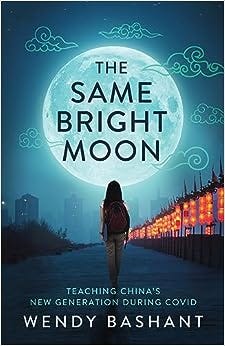Note: All xpostfactoid subscriptions are now through Substack alone (still free), though I will continue to cross-post on this site. If you're not subscribed, please visit xpostfactoid on Substack and sign up.
My last post spotlighted a form of elder abuse in New Jersey’s ACA marketplace. The state’s Individual Health Program (IHC) allows or requires insurers in the individual market to presume that enrollees who are over age 65 are eligible for Medicare — unless the enrollee provides proof positive otherwise.
If such proof is not furnished (at least one insurer, AmeriHealth, requires a letter from the Social Security Administration, which in turn requires applying for Medicare)— the insurer pays the enrollee’s claims only as a secondary payer, presuming that Medicare will pay the bulk of each claim. That leaves the enrollee on the hook for the bulk of every medical bill she incurs, rendering the insurance policy’s statutory out-of-pocket limit essentially void. NJ DOBI has been allowing insurers to do this since 2016, and in 2023 ratified the practice, stipulating in the standard policy policy form that the insurer “will assume the Covered Person is Eligible for Medicare and pay secondary benefits as set forth in this section unless the Covered Person provides written documentation that proves the Covered Person is not Eligible for Medicare” (p. 126)
CMS guidance issued on May 24, 2023 flatly forbids this practice, as CMS told me in response to a query, adding “CMS has been in contact with the New Jersey Department of Banking and Insurance (NJDOBI) regarding this issue. We recommend contacting NJDOBI for further information.” The May 24 guidance states that an ACA-compliant individual market insurer “may not limit or exclude coverage based on the theoretical possibility of an individual’s enrollment in other coverage… regardless of whether an individual is (or is presumed) eligible for Medicare.”
NJ DOBI did not respond to my repeated requests for comment on the state insurers’ apparent continuing violation of the CMS guidance — under color of state regulation. But an investigative reporter at NJ.com and the Star-Ledger, Karin Price Mueller, got on the case. And DOBI did respond to Mueller. Thus pushed, they are apparently ending the practice — effective yesterday:
“In light of the possible confusion in the market, the department (Wednesday) issued its own directive to carriers in the individual market — both on and off the marketplace — to ensure they are following the (Medicare guidance), which falls under the `Conformity with Law’ provision of the standard individual health benefits plans,” spokeswoman Dawn Thomas said.
The agency has told all insurance carriers to review the benefits of individuals who are 65 and older and enrolled in plans through GetCoveredNJ “to ensure that the policyholders are receiving the appropriate coverage, and that all coverage is consistent with the applicable Federal Guidance,” she said.
Thomas also said DOBI is reviewing how consumers may have been affected.
“Specifically, it is requiring that all carriers provide information on how the rule was implemented, including any requirements placed on consumers 65+ years of age, and what specific documentation may have been required for both on and off marketplace consumers,” Thomas said.
And, she said, the agency will make sure the language is clear when the 2024 plans roll around.
“If GetCoveredNJ determines a consumer eligible for a marketplace plan, the consumer should remain eligible and get the full benefits of the policy selected,” she said.
If those promises look a little soft to jaded eyes, other language in DOBI’s statement to Mueller, which she shared with me, was less equivocal:
On May 24, 2023, the Centers for Medicare and Medicaid Services (CMS) released guidance to insurers that demonstrated to the department that the IHC board’s rule change was not in compliance with CMS rules. Therefore, in June, the department informed carriers that the CMS guidance will govern the individual market and made clear the department accepted CMS’ position.
Apparently, that June bulletin changed nothing. Now, pending enforcement, this longstanding abuse of the fundamental ACA promise (quality affordable comprehensive coverage) appears to be ended going forward. But “going forward” points to a problem, which Mueller gave me a chance to articulate:
“I’m delighted to learn that DOBI is now acting swiftly to end this abusive practice — allowing Obamacare insurers to strip older plan members of most of the coverage to which they’re entitled,” Sprung said. “Now DOBI needs to dig in and find out whether there are people who have been subject to this practice for years who may have been saddled with provider bills that their insurer should have paid — and if so, to make sure those wrongs are righted.”
DOBI clarified to Mueller that NJ individual market insurers have been allowed to presume over-65 enrollees eligible for Medicare and act as a secondary payer at least since 2016. I have viewed bills from 2022 that reflect that practice. So there is compensatory work to be done. In 2023, almost 9000 enrollees through GetCoveredNJ were over 65. How many have been enrolled, and shorted coverage, in seven or more years?
Why 2016? In that year’s annual Notice of Benefit and Payment Parameters (NBPP) for the ACA marketplace, clarified that a marketplace enrollee who turns 65 during the plan year and enrolls in Medicare can maintain her marketplace plan, though she would lose eligibility for subsidies. A Medicare enrollee can even renew a marketplace plan if that plan does not change, i.e. if a new “contract of insurance” is not required. Why anyone would want to pay full freight for a marketplace plan (at least $800+/month in New Jersey in 2023 for an over-65 enrollee) when they are enrolled in Medicare is hard to fathom, but it can be done.
While finalizing this rule, CMS noted, “Several commenters expressed concerns that individuals enrolled in Medicare and those who are eligible for but not yet covered by Medicare present a significant burden to the single risk pool” (p. 94068). That is very likely the concern that New Jersey’s individual market insurers brought to regulators to get permission to presume elder enrollees eligible for Medicare. Ever since (if not before), in at least some if not virtually all cases, they have been getting full premiums for enrollees over age 65 while paying only what Medicare is presumed not to pay on claims.
Hats off to Karin Mueller, who was able to get what I could not from DOBI.


